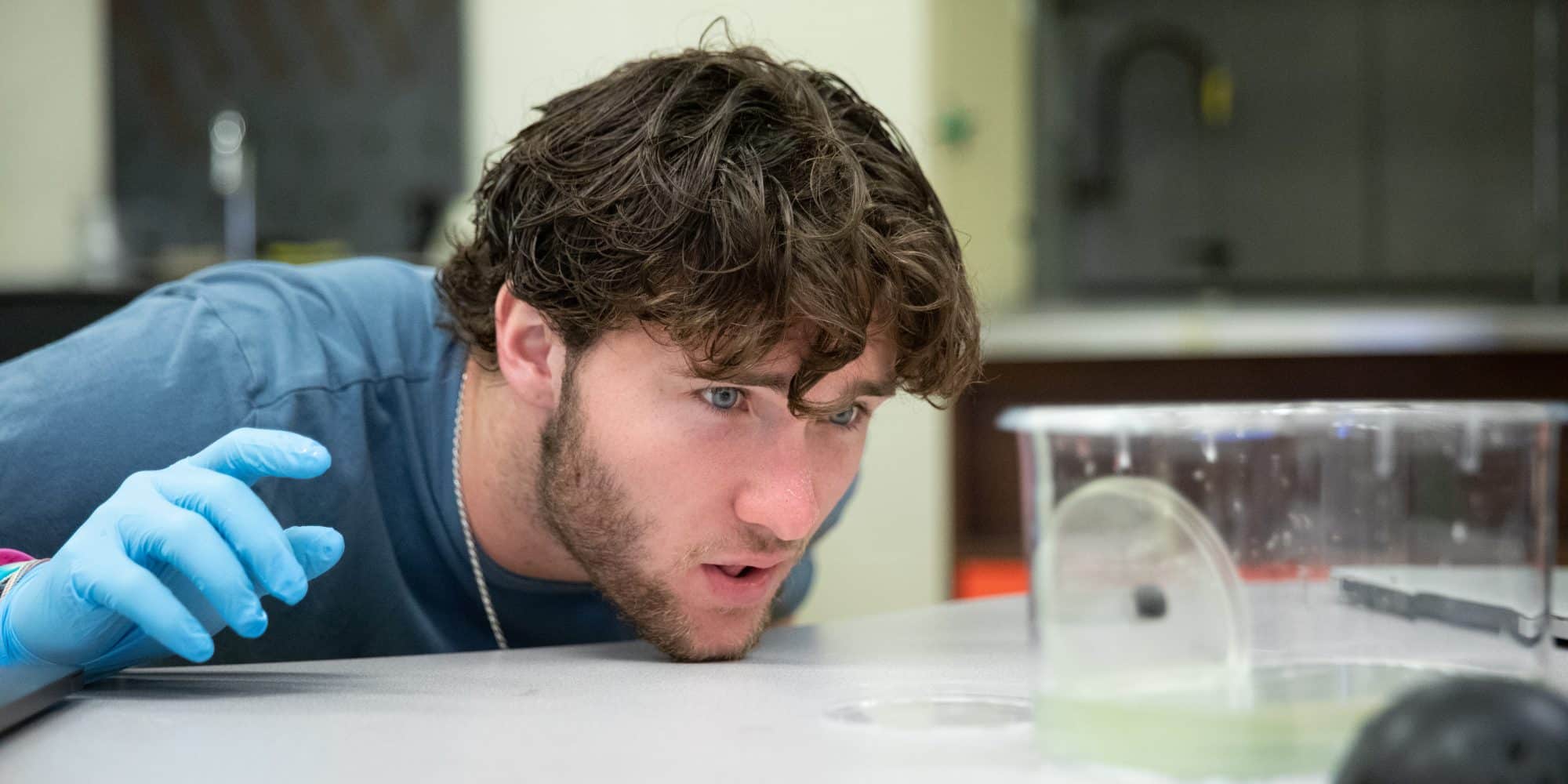The hallmark of an RMC graduate is their readiness to think – to unite ideas, solve problems, and communicate their solutions. It’s the goal of a curriculum that’s rooted in the tradition of the liberal arts, designed to help students build practical skills and a strong moral compass as they explore ideas in their field and beyond.

Curriculum
Courses are crafted to meet multiple requirements, ensuring students explore ideas as they pursue their majors and build lifelong skills that make them future ready. In that spirit, classes are RMC often bring disciplines together, like practicing science to preserve ancient artifacts, or learning a language to be used in a healthcare setting.
Note: Students who entered in 2020 are completing the College’s previous curriculum.

Pillars
The pillars represent broad and enduring concepts that are not tied to any one discipline. You’ll take at least one course in every pillar. (You may take more than one course within a pillar, but you will only be able to count one pillar course toward your major). The pillars are:
- Aesthetic expression
- Civic life
- Global experiences
- The human condition
- Quantitative and symbolic reasoning
- Scientific process
Within pillar courses, students are required to take at least one course in the social sciences, humanities, and natural sciences, as well as a course that includes a focus on writing.
Cross-Area Requirements
Students are also required to take a course that has a component of each of the cross-area requirements, concerned with experiences and interdisciplinary knowledge.
- Experiential learning
- Non-western culture
- Diversity and inclusion
- A capstone experience
Courses fulfilling these requirements are found in the pillars, and in major and minor programs.
Effective Communication
This set of requirements includes 4 required courses, including ENGL 185 Critical Reading and Writing. All students also take courses certified for:
- Oral Communication (one course)
- Communication in context (one course – sometimes in a students’ major area)
- Foreign language communication (two courses – either two consecutive courses in a foreign language, or completion of a foreign language through the intermediate level (212 or 215)
Wellness
51�Թ��� was the first school in the South to require physical education, and today students enjoy and honor that tradition by taking two physical education courses. Student-athletes and some co-curricular participants may meet this requirement through their campus activities; others take popular classes like barre and pickleball.
Curriculum Goals
- Students should acquire depth of knowledge in a major field and breadth of knowledge in the arts, humanities, sciences, and social sciences.
- Students should synthesize and integrate knowledge to develop interdisciplinary solutions to open-ended questions.
- Students should be able to access, analyze, evaluate, and use information effectively and ethically.
- Students should be able to reason critically, historically, scientifically, quantitatively, and logically.
- Students should engage in the creative process.
- Students should be able to communicate effectively in writing and speaking, across differences of language and culture, using traditional and new media.
- Students should appreciate diversity and the ethical and environmental responsibilities of local and global citizenship.
- Students should respect the mental and physical well-being of self and others.
Requirements for Academic Major
All students must complete successfully the requirements of a major program of study in order to receive a degree from 51�Թ���.
A major program consists of at least 30 semester hours, satisfying the requirements of the department or interdisciplinary council under whose direction the program is being pursued.
Requirements for Academic Minor
Students have the option of completing a minor program in addition to a major program. A minor shall consist of no fewer than 15 semester hours and no more than 20 semester hours in one discipline or in an interdisciplinary program. Courses taken to satisfy collegiate requirements or requirements for major programs may be counted for academic minors where appropriate.

